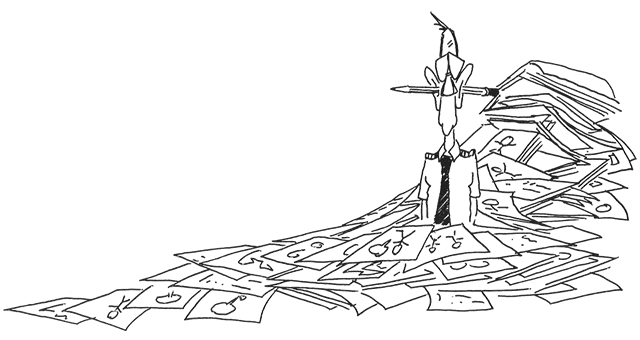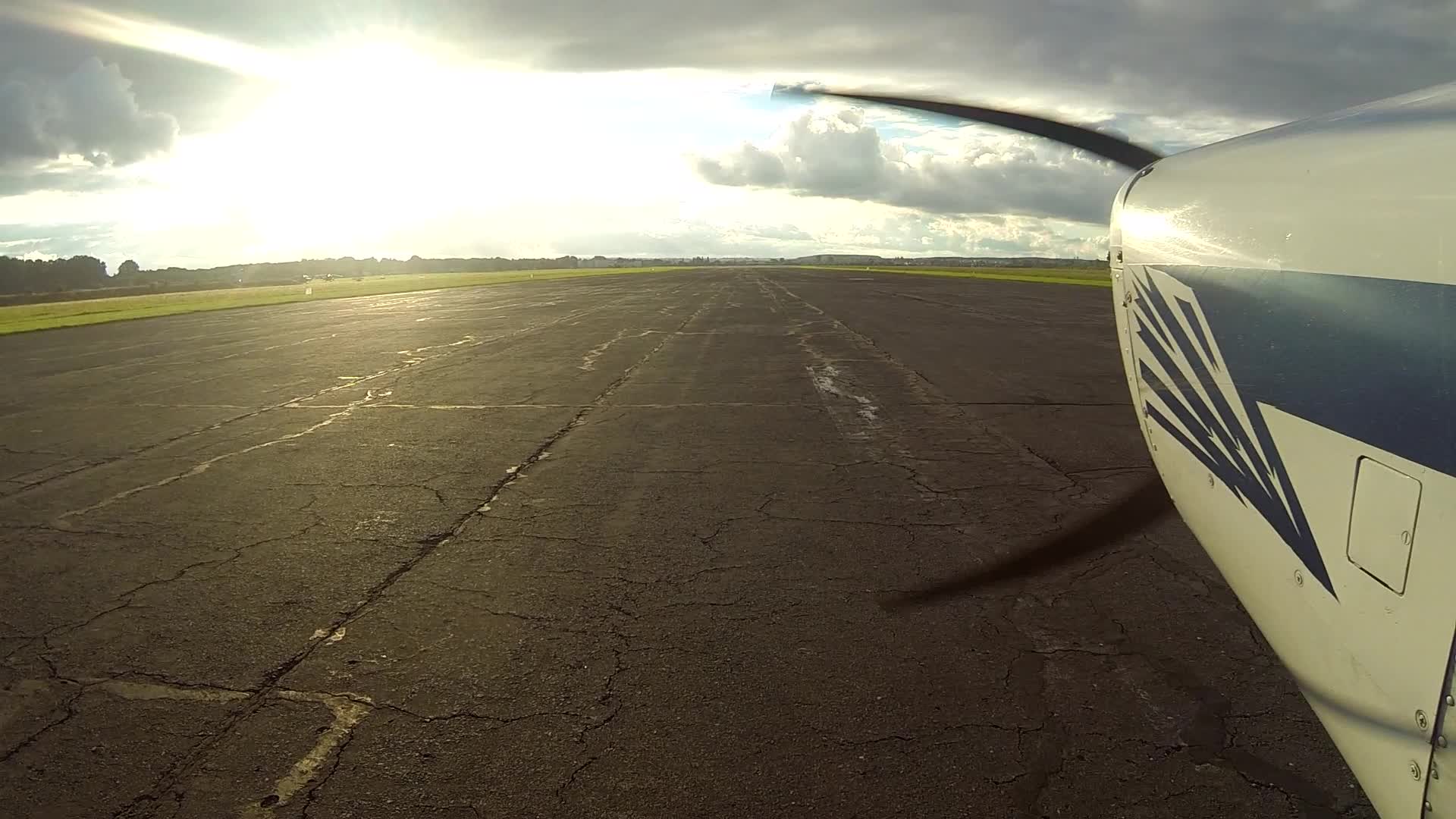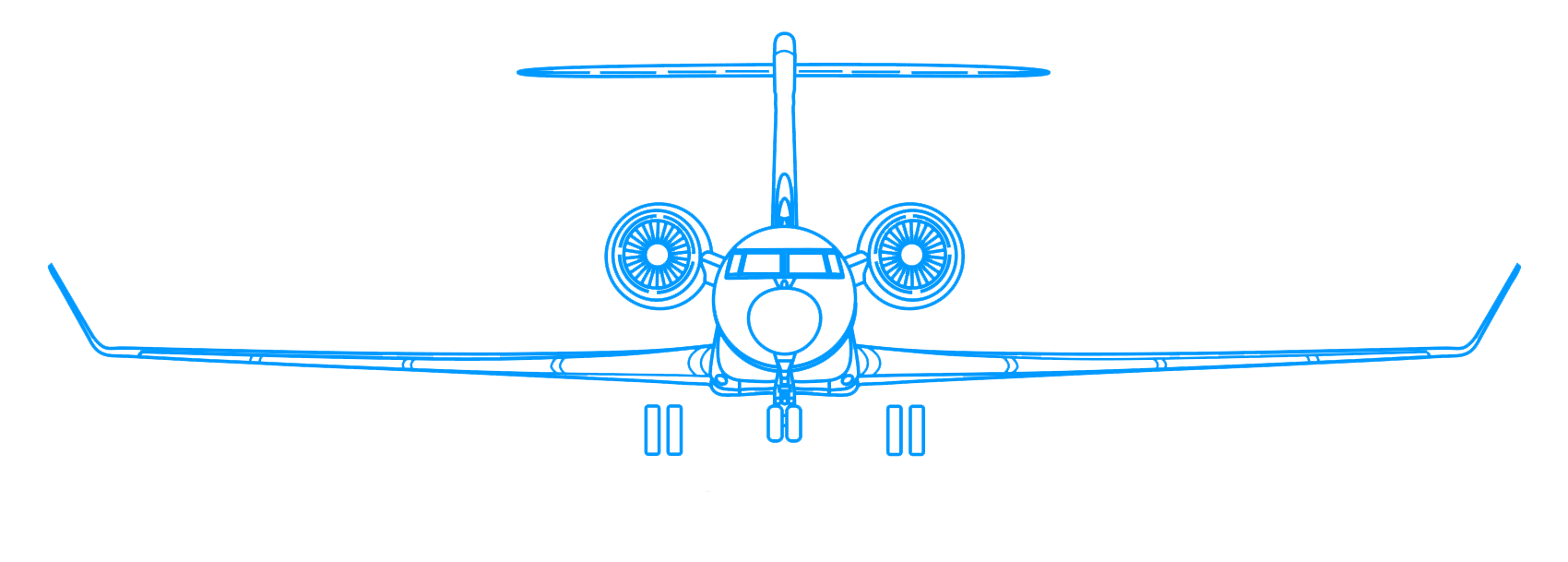"The Rules" are twenty-six ideas I've collected over the years that seemed relevant enough to life in general that I've written each down with a short story to reinforce each in particular. This is Rule Number One.
— James Albright
Attitude determines altitude
(1977)
As my fourth year and seventh semester began at Purdue in the Air Force Reserve Officer Training Program, so too began the Flight Instruction Program for the eight pilot cadets in the senior class. While the other seven were pouring over a flight text book and the Cessna 150 flight manual, I was busy meeting with the ROTC cadre and my cadet corps staff planning the year to come. It was not what I had in mind for the semester I had been looking forward to for three years.
As it turns out, being a cadet corps wing commander is a pretty silly job. At age twenty-one I still had a bit of a boyish face and at six-foot-one I weighed all of 150 pounds. Looking at the mirror I had to admit I didn't have the look of the title. And yet there I was, looking back in the mirror, dressed in a blue uniform with black shoulder boards and four silver stripes. All the Air Force cadets on campus knew to salute me. The other military cadets were not so sure. I once got a salute from a Navy lieutenant. I didn't bother explaining to him that I was not a real commissioned officer and that I owed him a salute, not the other way around. It seemed less embarrassing for everyone concerned to simply return the salute.
The job entailed holding a meeting every week with other cadets in the senior staff, standing in front of the 200 cadets every now and then during drills, and speaking to an audience of 200-plus every month. For some reason that last bit was the only part I enjoyed. No matter, I soon found time to fly.
The Air Force was going to pay for twenty hours in a Cessna 150 to see if I had what it takes, or so the story goes. I knew the real reason was to wash out those who had a natural fear of flying or a lack of desire. They said it cost a million dollars to put one candidate through Air Force Undergraduate Pilot Training and that if this Cessna 150 program washed just one candidate out it paid for itself. That wasn't going to be me.
I studied the Cessna 150 operating handbook the way I studied any engineering text. No, that's not right. I studied that handbook eagerly and as if my life depended on it. Because it did, I told myself. Lesson one was in the classroom with my very first flight instructor, Steve Belamy. He was a pure civilian out at Purdue Airport, just outside of West Lafayette, Indiana. Steve had no connection to the military other than the fact he was on the Air Force payroll every summer to get us cadets through this. He had long hair, wore polyester clothes, and had the swagger of the disco craze sweeping the country.
"Memorize this," he began lesson one on day one, "Power determines altitude and pitch determines airspeed."
I wrote the words down with the immediate realization that they were wrong. Even with zero hours in my logbook I knew that adding power made the airplane go faster and pulling up on the yoke makes you go higher. But I kept my mouth shut and finished the day looking forward to my first flight.
Sortie One was fun, as I knew it would be. Steve let me try a little bit of everything but my only gradable event for the day was keeping the airplane straight and level when asked to do so. "Power determines altitude," he repeated over and over, "keep the airplane in trim and you won't have to worry about the speed." I tried it his way. Though it worked, it seemed simpler to pull or push the yoke to make the altimeter behave.
I rushed to the library and picked up every book on primary flight instruction I could find. Steve's words were repeated in some of the very basic texts. It still made no sense at all. I was up there, flying the airplane. When I changed power the speed changed. And the altimeter reacted to the yoke. It was like George Daniels would always say, "Houses smaller," while pulling back on an imaginary yoke, "Houses bigger," while pushing forward. George already had his pilot's license, he knew what he was talking about. But so did Steve.
Sortie One turned into Sorties Two, Three, Four and Five. The first cadet in our class soloed on Sortie Four. The next two on Sortie Five. I mastered each maneuver quickly, though I really wasn't doing the "power determines altitude" thing. As my grade book filled and all of the requirements for solo were met, Steve wouldn't let me take the airplane around the pattern on my own. I found myself in the humiliating position of being the only cadet yet to solo. Everybody knew I started last because of my cadet corps responsibilities, but soon they would know I was last because . . . well I'm not sure why.
I bore my frustration silently while going through the cadet wing commander motions. The colonel asked to see me one morning and wanted to talk about eye shadow. He didn't think female cadets should be allowed to wear blue eye shadow because it was unnatural. It was my job to ensure our cadets didn't wear blue eye shadow. When I reminded him that many people have blue eyes and perhaps it was natural after all, he emphasized the word was natural and there was natural blue and unnatural blue and my job was to determine the difference. Like I said, it was a silly job.
On my way out of the office I heard a cricket chirp, the telltale sign Major Sawadee wanted to see you. Sawadee was still the only pilot in our officer cadre but he still was teaching the sophomore cadets so I hardly ever saw him. "Sir?" I asked while poking my head into his office.
"How's it going, James? How about shooting the breeze with a fellow pilot?"
"So you've heard," I said, "Sortie Five and I still haven't soloed." I explained how I was signed off on every maneuver but not for solo. Something just didn't add up.
"Some instructors are a bit skittish," the major explained, "just give him some time."
I explained how Steve Belamy signed me off for everything two flights ago, but just won't let me solo. I went over some of my complaints about Steve, starting with the "Power determines altitude and pitch determines airspeed" mantra.
"Well that's total bullshit," Sawadee said, "Attitude determines altitude. Period. Every military pilot knows that." He explained that with everything else constant on a simple propeller-driven airplane, there is a given airspeed for a given pitch. Civilians emphasize that as a way to hammer home the aircraft has to be trimmed for that airspeed.
"When you get to flying jets in the Air Force you are going to learn about the 'control and performance' concept. But for now, do it your instructor's way." He sat quietly for a while and then looked me in the eye. "You are a typical engineer, James, and that will help you in the cockpit in the long run. But in the short run it is hurting you. Your mental attitude, that's key."
"I've never had an attitude problem, sir."
"No," Sawadee admitted, "you haven't; just the wrong attitude. Being a pilot is more than stick and rudder, procedures and techniques. Being a pilot is about an inner faith in yourself. You have to believe you can do something before you can do it. You have to have the confidence. Don't strap into the aircraft. Strap on the aircraft, become a part of it. Don't push and pull the levers to coax the airplane into doing something you want, you make the airplane react to your will. You've got to have the pilot attitude."
"Cocky?"
"Yeah." Sawadee's eyes lit up. "Cocky and arrogant. That's what it takes. Why would a sane man get into a fighter and fly into a nest of surface to air missiles when the odds are against him? Because he believes he can beat them. He might be wrong, but he believes. You have to believe before you can do. There are times to be an engineer. But there are times to be a cocky SOB. It's all about attitude."
The next day I strapped on that Cessna 150 and flew it around the pattern like I owned the place. After my first landing Belamy pulled back on the throttle and said, "let's pull off the runway for a minute." I did as instructed and stopped on the nearest taxiway.
"You go up and give me three landings," he said while unfastening his seat belt, "then come pick me up."
I soloed on Sortie Six.


